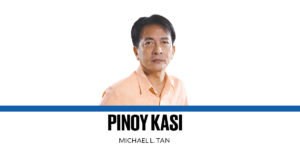Relative to its comparable neighbors, the Philippines has a low birth rate—not of humans, though, but of business firms. The 2018 World Development Indicators of the World Bank reports that for every 1 million working-age population, 2,300 new businesses were born in Malaysia in 2016, 1,000 were born in Thailand, while only 300 were born in the Philippines. It was observed that our economy’s ability to generate new private sector firms, which in turn create new jobs, is restricted by the complexity of regulations, including those that protect incumbents.
A friend in business describes our problem as having a “heavy-handed government,” one that has made an art out of putting a regulatory hurdle every step of the way of doing business, in virtually any enterprise. At the time, that friend was complaining about yet another new regulation imposed on their company by the Department of Labor and Employment (Dole): They were required to hire an in-house licensed mechanical engineer as part of their regular staff. And yet their firm had done well for decades engaging such an expert on a retainer basis, on-call and ready to come on short notice on the intermittent occasions that his expertise was actually needed. They never found a licensed engineer’s presence to be necessary on a day-to-day basis. What the Dole requirement did was to unnecessarily raise their production costs, which would ultimately be shouldered by their consumers.
In a recent gathering of practitioners and advocates working toward the reforestation and development of the Laguna Lake watershed, someone passionately argued that the Laguna Lake Development Authority (LLDA) is a misnomer. It would be better called LLRA (R for regulatory), he said, as most of what the agency does and is concerned about is anything but developmental. It seems more interested in putting regulatory hurdles in the way of would-be investors and do-gooders who could help improve the condition of the lake, protect its watershed and lakeshores from environmental degradation, and foster increased livelihoods around it.
Someone volunteered that the Cooperatives Development Authority seemed similarly overly focused on compliance with template requirements, and not enough on enabling innovative approaches to cooperativism. Still another believed that we could probably say the same of most other sectoral government agencies with names ending in the words “development authority.” It seems that government bureaucrats tend to have more of a regulatory mindset rather than a truly developmental one. I’ve written before on how our government bureaucrats have seemingly become such experts in constantly finding new ways of making things as hard as possible for citizens, especially in frontline services. One gets the feeling that it’s a culture that’s so deeply ingrained, and will take more than a generation to change.
The World Bank’s Manila office recently hosted a consultation forum meant to elicit suggestions on how the bank can be more effective in assisting the country pursue its development goals. Inevitably, the problem of excessive regulation again became a prominent focus of discussion. Someone suggested that perhaps a good way the bank can help is to have officials and staff of regulatory agencies (and regulatory bodies purporting to be “development authorities”) visit and learn firsthand from other countries that do regulation right—that is, minimize them.
To be fair, I have encountered countless government officials and rank-and-file staff who depart from the mold, and possess a genuinely enabling attitude in approaching their work. We now have an Ease of Doing Business Act (Republic Act No. 11032), enacted into law in May last year, although it took more than a year for its Implementing Rules and Regulations to be completed and finally adopted—due to the usual bureaucratic rigidities. Everyone is hoping that this will not be yet another example of a good law that falls flat on its implementation and/or enforcement, a story that has become all too common in the Philippine scene. Perhaps with its faithful implementation, the heavy hand of government can finally become a thing of the past.
cielito.habito@gmail.com


